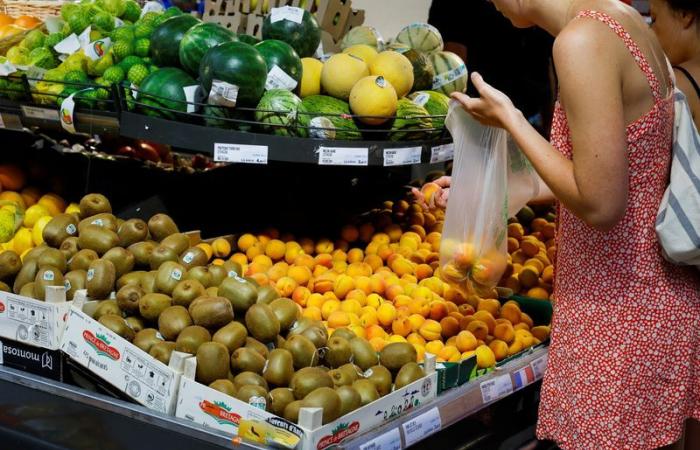Eurozone inflation eased last month, but a key services component remained stubbornly high, likely fueling concerns among some European Central Bank policymakers that domestic price pressures could remain elevated.
Consumer inflation in the 20 countries sharing the euro slowed to 2.5% in June from 2.6% the previous month, in line with expectations in a Reuters poll of economists, due to a moderate rise in the costs of energy and unprocessed food.
While the ECB has long forecast that inflation will hover around that level for the rest of the year, economists are carefully examining underlying price trends to determine whether the ECB can actually bring inflation back to its 2% target next year.
The closely watched core inflation figure remained stable at 2.9%, beating forecasts of 2.8%, mainly due to a continued 4.1% rise in services prices.
These figures are unlikely to give the ECB any clear indication of the direction prices are heading, and ECB President Christine Lagarde has already said more time is needed to have certainty, so there should be no rush to ease policy further.
While goods prices have been subdued for most of the year and energy inflation has also fallen, services have remained stable, a phenomenon that has divided ECB policymakers.
Some argue that the evolution of services is only lagging behind that of other components and that a moderation is underway, which will also be favoured by an economic rebound which should improve competitiveness.
Others, however, fear that labor shortages, rapid wage growth, and poor productivity indicators in services will lead to rapid price growth, which could keep headline inflation above target for an extended period.
In a sign that labor market tensions will persist, data released Tuesday showed that the eurozone unemployment rate held steady at a record 6.4% in May. The jobless rate is now more than a percentage point below its pre-pandemic low, while employment is rising.
The ECB cut interest rates in early June to acknowledge progress in disinflation, but made no commitments about further action, saying it was still not convinced that inflation was on track to reach its target.
Policymakers nevertheless seem to agree that the next step is a cut, the only question being when. July is too early for such a move, many observers say, but September is an open debate, especially if data on wage and price trends confirm the ECB’s forecast. (Reporting by Balazs Koranyi, editing by Bernadette Baum)





